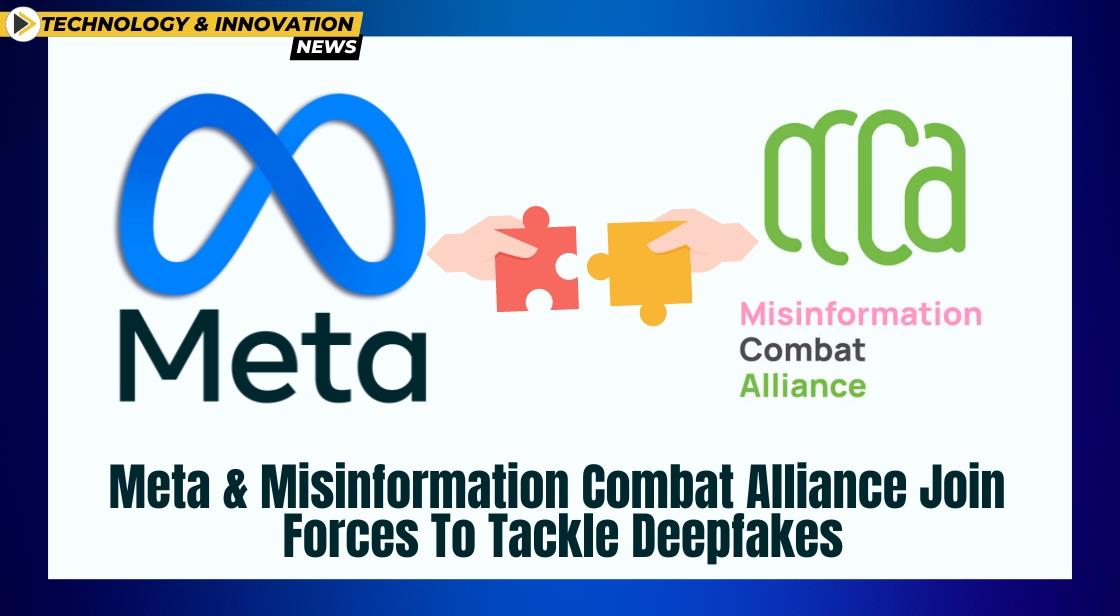Meta and Misinformation Combat Alliance Join Forces to Tackle Deepfakes

News Synopsis
WhatsApp, in collaboration with the Misinformation Combat Alliance (MCA) and Meta, has revealed plans to introduce a dedicated fact-checking helpline on its platform. This strategic initiative, set to launch in March 2024, aims to counter the dissemination of deceptive AI-generated content, empowering users with verified information and addressing the increasing threat of deepfakes in the media landscape.
WhatsApp's Response to Deepfake Threats
Meta and MCA have joined forces to establish a unique fact-checking helpline on WhatsApp, providing users with a direct avenue to report suspected deepfakes. This multilingual helpline, available in English, Hindi, Tamil, and Telugu, will leverage a sophisticated chatbot system. Users can submit content for review, and a central 'deepfake analysis unit' formed by MCA, in collaboration with fact-checkers, research organizations, and industry partners, will scrutinize flagged content.
The Four-Pillar Approach
Meta emphasizes a comprehensive approach to tackle deepfakes, focusing on four pillars: detection, prevention, reporting, and driving awareness. The program aims to combat the rising spread of deceptive AI-generated content by providing citizens with reliable information, creating a crucial tool in the fight against misinformation.
Collaborative Efforts for Misinformation Combat
Shivnath Thukral, Director of Public Policy India at Meta, underscores the importance of collaborative efforts in combating AI-generated misinformation. Meta's commitment, as part of the Tech Accord, aligns with the goal to combat deceptive AI use in the 2024 elections. Thukral highlights the WhatsApp helpline as a concrete step towards fulfilling this commitment.
Deepfakes Analysis Unit (DAU) - Safeguarding Information Ecosystem
Bharat Gupta, President of the Misinformation Combat Alliance, hails the establishment of the Deepfakes Analysis Unit (DAU) as a pivotal step in safeguarding India's information ecosystem. This collective effort involves fact-checkers, journalists, tech professionals, and forensic experts supported by Meta, positioning the DAU as a trusted resource for the public.
Meta's Fact-Checking Program in India
Meta's fact-checking program in India, in partnership with 11 independent fact-checking organizations, complements the upcoming WhatsApp helpline. Users are encouraged to utilize WhatsApp tiplines and dedicated fact-checking channels to verify information, contributing to the mitigation of misinformation spread.
Tech Accord and Global Efforts to Combat Deepfakes:
The fight against deepfakes isn't confined to India. It's a global challenge demanding international collaboration. One such effort is the Tech Accord to Combat Deceptive Use of AI in 2024 Elections, signed by major tech companies like Meta, Google, Microsoft, and Adobe. This accord outlines key principles for:
-
Developing detection technology: Identifying and labeling deepfakes to avoid their spread.
-
Educating the public: Raising awareness about deepfakes and how to spot them.
-
Promoting transparency: Disclosing the use of AI-generated content and its limitations.
-
Preventing harm: Implementing safeguards to prevent deepfakes from influencing elections or causing other harm.
This accord demonstrates a united front against deepfakes on the global stage. Other initiatives include:
-
The Deepfake Detection Challenge: Organized by DARPA and Facebook, this challenge encourages researchers to develop advanced deepfake detection methods.
-
The Partnership on AI: This multi-stakeholder effort promotes responsible AI development, including addressing deepfakes.
-
The European Union's Digital Services Act: This act includes regulations for online platforms, requiring them to tackle deepfakes and other harmful content.
These efforts show a growing global commitment to tackling deepfakes, recognizing their potential impact on various aspects of society.
Tips for Identifying and Avoiding Deepfakes:
While technology plays a crucial role, individual vigilance is also essential. Here are some tips to help you identify and avoid deepfakes:
-
Be skeptical of overly perfect content: Deepfakes often look flawless, so be wary of videos or images that seem too good to be true.
-
Pay attention to audio and lighting: Inconsistencies in these aspects can be signs of manipulation.
-
Check the source: Don't share content from unreliable sources or individuals with a history of misinformation.
-
Use reverse image search tools: Verify the origin of images or videos online.
-
Fact-check suspicious claims: Don't rely solely on emotion or intuition; seek factual information from trusted sources.
-
Talk to others: Discuss your concerns with friends, family, and media literacy experts.
By staying informed, practicing critical thinking, and collaborating with others, we can collectively build a more resilient online environment against the threat of deepfakes.
Remember: There's no foolproof way to detect every deepfake, but staying informed, raising awareness, and using these tips can significantly reduce the risk of falling victim to them.
Conclusion:
The collaboration between MCA and Meta signifies a broader industry commitment, as seen in initiatives like the "Tech Accord to Combat Deceptive Use of AI in 2024 Elections." This collaborative effort aims to safeguard electoral processes globally, focusing on technological advancements, educational campaigns, and transparency measures to counter harmful AI-generated content.
You May Like









